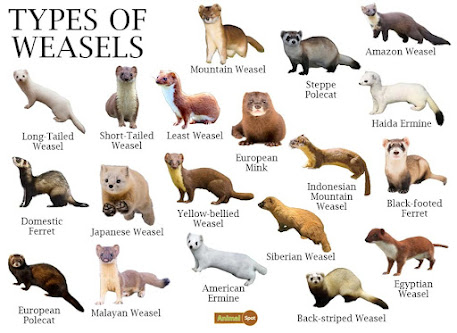Robinson gave a good explanation for his position, in the article:
Pinker is supposedly “such a nice guy,” a person who is restrained and moderate and reasonable, who laments that politics has gotten so vicious and tribal. And yet in his books, you find him comparing environmentalists to Nazis and campus anti-bigotry initiatives to Stalin’s purges. Those he disagrees with are “quasi-religious,” “authoritarian,” they push “emotionally charged but morally irrelevant red herrings.” Al Gore and the Unabomber belong together. When anthropologist Jason Hickel critiqued Pinker’s theses in the Guardian, Pinker snapped that Hickel was a “Marxist idealogue” while leaving many of Hickel’s arguments unaddressed. Is this what the Chronicle called Pinker’s “relentless friendly persuasion, a kind of indefatigable reasonableness”?
I do not mean to dwell too much on the tone of Pinker’s writing, but it’s important to see how dishonest centrist critics of social justice rhetoric can be. Pinker treats the left as hysterically overstating its case, of calling everybody racists and despoilers, even as he brands them Nazis and Stalinists. One of the common themes I see in critics of social justice politics is engaging in the very thing they’re accusing the left of doing. There are countless examples of this in Pinker’s work. For example, in The Blank Slate, which is strongly critical of mainstream feminism, he cites Gloria Steinem saying: “What you need is people who see through literature like Andrea Dworkin, who see through law like me, to see through art and create the uncompromised woman’s visual vocabulary.” Pinker concludes from this quote that Steinem is “oblivious to the danger inherent in a few intellectuals’ arrogating the role of deciding which art and literature the rest of society will enjoy.” This is an incredibly audacious remark for a book with entire sections on which art is the Good Art and which art is “ugly, baffling, and insulting art”:
“In this chapter I will diagnose the malaise of the arts and humanities and offer some suggestions for revitalizing them… Once we recognize what modernism and postmodernism have done to the elite arts and humanities, the reasons for their decline and fall become all too obvious.”
When you say it, it’s dangerous elitism. When I say it, it’s Science!
Robinson gives an excellent demonstration of what a jerk Pinker is, but I don't buy that Pinker is a centrist. He seems pretty damn far right to me.
And the fact that Pinker has an interview in Quillette this week tells you two things:
One - Quillette's racism - or as editor Claire Lehmann herself admitted, "hereditarianism" - does not bother Pinker, he's happy to publicly align with a media outlet said to be funded by Peter Thiel, and in which Pinker's buddy Razib Khan gave a glowing review of Charles Murray's racist screed "Facing Reality."
Two - this is probably just my own wishful thinking, but the fact that Pinker is giving an interview to Quillette could mean that better, more reputable media aren't interested in interviewing Pinker as much as in the past.But let's jump to prime Pinker weaseling in the interview:
Q: There seems to be growing hostility to the concept of merit. Michael Sandel’s The Tyranny of Merit was published in 2020. One expression of this hostility is the rejection of standardized tests, which were once regarded as tools for making university admissions more egalitarian. Where does this animosity toward merit come from, and what do you think about it?
SP: I just debated Sandel at the new undergraduate Harvard Union Society, inspired by the Cambridge and Oxford debating societies. Part of the animosity comes from the current ideologies of social justice, equity, critical race theory, Diversity-Equity-Inclusion, or, derogatorily, wokeism, in which any disparity between groups in the distribution of privileges and powers is ipso facto proof of bigotry. This ignores the possibility of historical, geographic, cultural, and economic differences among groups, as Thomas Sowell and others have long pointed out. It’s an embarrassment when standardized tests expose differences in the possible causes of social outcomes which are not obviously racism or sexism, like academic preparation, and the question of where the differences originate has become taboo. Therefore, the tests themselves are denigrated as biased, even though research specifically addressed to that question has shown they are not.
Pinker cites Thomas Sowell, of the right-wing Hoover Institute the right's favorite Black white supremacy apologist, even more than Quillette author John McWhorter.
And it turns out Putinbot Konstantin Kisin, who I never heard of until my previous blog post, is a big fan of Sowell. No surprise there.
But on what planet do ideologies of social justice ignore "the possibility of historical, geographic, cultural, and economic differences among groups."
Those are all the things that social justice does talk about!
Or to be more exact, the interaction of history and economics.
As usual with Pinker, you have to read between the lines because he's much too weaselly to come out and state his actual beliefs. Anybody who spends two seconds looking can refute Pinker's claim, that social justice beliefs ignore historical or economic differences.
What's really interesting is "geographic" and "cultural" differences. What does Pinker mean by "geographic" differences? Who even talks about geographic differences?
There's no link provided in the Quillette article, so I don't know what Sowell actually said, but I think that what Pinker means by "geographic" differences is the "cold winters" hypothesis of race pseudoscience, promoted by Richard Lynn, but which had been around since at least Schopenhauer.
And Pinker's race pseudoscience ally Andrew Sullivan was rehashing the "Black cultural differences" trope not long ago, a trope which implies that there's something peculiar about Black people that makes them create a "culture" of unemployment and poverty.
That's Pinker for you in a nutshell - the world's most annoying man and the world's most annoying weasel.
